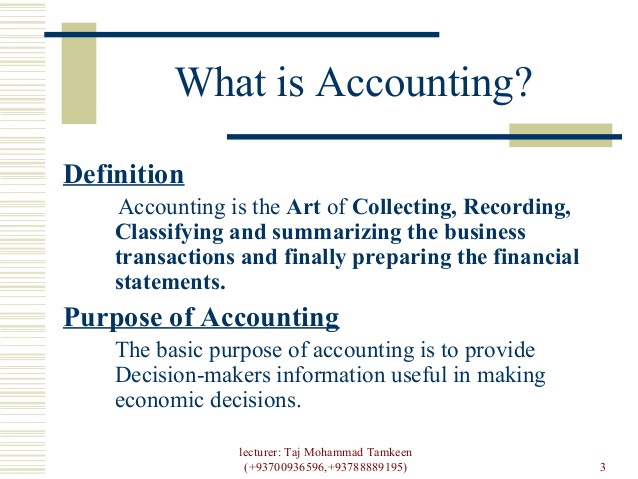
Thousands of people have transformed the way they plan their business through our ground-breaking financial forecasting software. Budgets typically cover a variety of categories, including income, expenses, savings, and investments. The process of creating a budget involves estimating and projecting income from various sources, such as salaries, investments, or business revenue.
Because businesses make forecasts regularly, the forecast term is usually shorter than the budget period. Some businesses, for example, forecast quarterly, while others forecast weekly. Forecasts recognise a variety of market factors, making them more accurate.
Weather forecast accuracy is crucial in a heat wave — 1 degree can mean the difference between life and death – The Philadelphia Inquirer
Weather forecast accuracy is crucial in a heat wave — 1 degree can mean the difference between life and death.
Posted: Thu, 27 Jul 2023 07:00:00 GMT [source]
The budget highlights the expectations for the year, while the forecast highlights the business’ current trajectory. Many businesses will use simple spreadsheets, but a purpose-built budgeting and forecasting software solution will make this a far more efficient and easy process. Having a view of both will help you to analyze your business more efficiently. The profit and loss of a business depend on factors such as income and expenditure of your financial plan.
If they didn’t, your budget makes it easier to pinpoint where you came up short. Budgeting involves quantifying the expected revenue that the business wants to achieve for the future. Financial forecasting, on the other hand, specifies the amount of revenue or income to be achieved in the future.
Forecasting vs Budgeting: Which is best for you?
Forecasting is another financial tool commonly used to help determine the financial status of a company. The meaning of financial forecasting is quite different from that of budgeting. Where the budget is used as a financial planner, the forecast uses this plan and compares it to the current financial direction of the company. They do this to predict where the company will end up by the end of that year.
Budgets are a useful first step for businesses to understand their financial picture. The income expectations and spending limits establish useful guidelines for a business to follow to remain healthy. However, due to their limitations and conservative nature, budgeting is really a tactical exercise, concerned with the details of spending to keep profit and cash positive. All three terms reflect expectations and estimates of financial objectives.
Conclusion: Plan vs. budget vs. forecast
This activity also helps businesses allocate their budgets adequately and evaluate whether the business plan is achieved. Typically, management will start by creating an annual budget based on business goals for the year. Difference between budget and forecast Then, they can use financial forecasts to visualize different scenarios for achieving their budget goals. A budget is made for a specific period and is usually based on past trends or experiences of the company.

Forecasting, on the other hand, projects where a company is headed based on the latest available information. While budgets are static and usually prepared for a year or longer periods, forecasts are updated monthly or quarterly. The business plan is the big picture, while a budget focuses on specific financial objectives for a period of time. From there, forecasting tells you how well you’re tracking along with your budget. A budget is defined as a detailed financial plan for a particular accounting year.
Agile companies incorporate rolling forecasts to make planning an ongoing process instead of a quarterly event. These companies then are able to be more responsive in a fast-moving market while avoiding the surprises of their quarterly-routine forecasts. Typically business are concerned about the overall spending and the timing, so, in most cases, its likely beneficial to create both a budget and a cash flow forecast. A budget can help you plan your finances for the upcoming year, while a cash flow forecast can help you manage the timing of cash flows and plan for different scenarios. A budget helps businesses set financial goals and track their progress towards those goals. It also helps them make informed decisions about where to invest their resources, which can help them grow their business and increase their profitability.
This sort of planning entails making adjustments to your existing business budget. All you have to do is consider whatever you want and allocate your funds accordingly. For instance, to justify your expenditure, if you want your company to grow by 3% over the next year, you will raise your budget by 3%. Business forecasting methods can range from simple techniques, such as market analysis and extrapolation, to more complex approaches involving statistical models and predictive analytics. The choice of forecasting method depends on the nature and industry of the business.
Company
A budget helps in the control process, i.e. actual outcome is compared with the budgeted outcome, and if there is any deviation, then necessary actions are taken to prevent unplanned expenditures. The flow forecast is a set of plans for an organization that details the flow of cash. By using this method, we can easily calculate the monthly earnings and expenditure of our company and help to act according to it. The flow forecast helps to predict the income deficit, so we can rearrange our activities to maintain the financial stability of our organization. It gives the exact details regarding the receipts and projected payments form the corresponding bank accounts of the organization.
- They also use forecasts to identify trends that are used to grade the company’s financial position.
- Here are some best practices that can help you get the most out of your budgeting and financial processes.
- The financial orientation of where management wishes to take the company is determined through budgeting.
- But sometimes it can feel like the terms are used interchangeably and it’s not always easy to know which is which.
- Leaders ask themselves how the business will stack up in the next 1, 5, or even 10 years.
A budget is a financial plan that outlines projected income and expenses over a specific period of time. It is a tool used to track and manage finances, providing a roadmap for allocating resources effectively and achieving financial goals. Once a strategic forecast is built, a well-informed budget can be devised based on the targeted forecast projections. The budget sets detailed spending limits to help achieve the bigger picture forecast goals. This is how the two methods come together to support strong company management. As a business advisor, consultant or accountant, you might be more familiar with budgeting, and might even build budgets in your client’s accounting software.
Budget vs Forecast Comparison Table
Because of this, many businesses update their forecast data periodically, such as quarterly or biannually. It’s considered a best practice to build a rolling (ongoing) forecast to make these adjustments in real-time. Businesses, but most commonly, the Finance team, compile a budget to determine how the company will spend its capital during the next period—a month or quarter, but typically a fiscal year. Small businesses and startups that don’t have much historical data to use in forecasts can look at qualitative data such as surveys or research reports. According to a survey by Clutch, only 54% of small businesses created an official budget in 2021 — meaning many entrepreneurs don’t have an outline for annual financial goals.
This form of forecasting is widely used to create long-term business predictions. Rather than relying solely on one expert’s forecast, this strategy uses the expertise of several experts. For example, you could ask a panel of professionals to complete a questionnaire and then predict what will occur in the future. Although most budgets are set for a whole year, this is not an actual standard. For some businesses, the administrator may require flexibility enough to allow the budget to be altered as economic conditions change during the year. Also, know information about capital budgeting, as it is necessary to evaluate major projects and investments.
Fitch Upgrades WaterBridge Midstream Operating’s IDR to ‘B … – Fitch Ratings
Fitch Upgrades WaterBridge Midstream Operating’s IDR to ‘B ….
Posted: Tue, 22 Aug 2023 17:29:00 GMT [source]
A forecast uses historical and current transactional data, along with industry and market information, to help determine how to allocate budgets for anticipated expenses for a future period of time. Forecasting increases the confidence of the management team to make important business decisions. Budgeting and forecasting are financial tools that businesses use to plan for growth, and therefore, it is important for your accounting team to have a solid understanding of both. In short, budgets reflect what you want to happen, while forecasts reflect what you expect will happen.
In contrast, financial forecasting estimates the amount of revenue or income achieved in a future period. While a budget is typically short-term, financial forecasting happens both short-term and long-term, which takes more time. Also, companies need to create multiple forecasts to have the most accurate predictions of their business conditions. The budgeting vs forecasting process has been a good discussion between financial professionals.
Financial forecasting serves as an input for making budget allocations and helps management to develop its strategic plan. There could be quarterly revenue forecasts based on business drivers and past data. There could also be forecasts of cash flows for several years helping management in several aspects like determining the optimal capital structure. A forecast is an estimate or prediction of what your business will actually achieve. Forecasts tend to be more strategic than budgets, providing you with a roadmap of where your business is expected to go that’s based on historical data and business drivers. Generally, it’s restricted to revenue and expenses, and unlike budgets, forecasts are updated regularly (i.e. monthly or quarterly).
Difference Between Budget Version & Forecast Version.
The focus of a budget revolves around cash position, including expected revenues and expenses, to create specific financial goals for the foreseeable future. Combined, budgeting and forecasting provide a complete, comprehensive, and reliable financial plan or strategy. Through forecasting, the company can determine whether it’s on the right course and set realistic expectations. Budgeting provides a baseline for performance analysis by comparing projections with actual results to determine the variance. And forecasting helps a company estimate its financial future using historical data.
- As such, it normally provides the basis for any performance-based compensation and for the company’s variance reporting.
- Thousands of people have transformed the way they plan their business through our ground-breaking financial forecasting software.
- You’ll soon find you can prepare your budgets and forecasts all in one place – without the mess of spreadsheets!
- Larger companies often split the effort between different teams and functions.
Your cash planning can, in turn, also be linked to your revenue and expenses forecast. Budgeting and forecasting are both key tools for steering your business. Your accountant probably knows the differences between budgeting and forecasting. But sometimes it can feel like the terms are used interchangeably and it’s not always easy to know which is which. Having a fixed opening balance is crucial for determining stable cash flow. Avoid unusual patterns in your bank statements as it will cause discrepancies.
In addition, it’s frequently updated to correspond to market trends and changes in the business plan. Overall, forecasting is a more useful tool to use for your business, as it provides you with a more insightful understanding of the actual circumstances that your business is facing. Whereas forecasts can be used to spur immediate action, budgets often provide unachievable targets or goals that simply bear no relation to current market conditions. However, it’s also important not to discount the potential benefits of a budget. Ultimately, budgeting and forecasting go hand in hand, and can be used in tandem to optimize your company’s long-term strategy. The budgets are prepared for the forthcoming period, considering various objectives of the business organization such as vision, mission, goals, objectives, and strategies.
